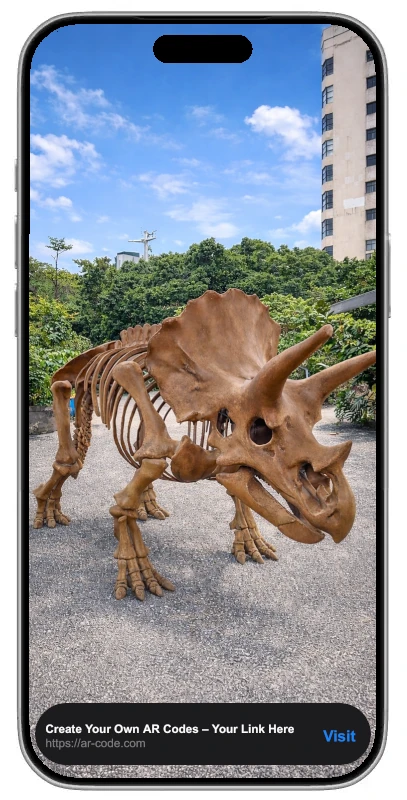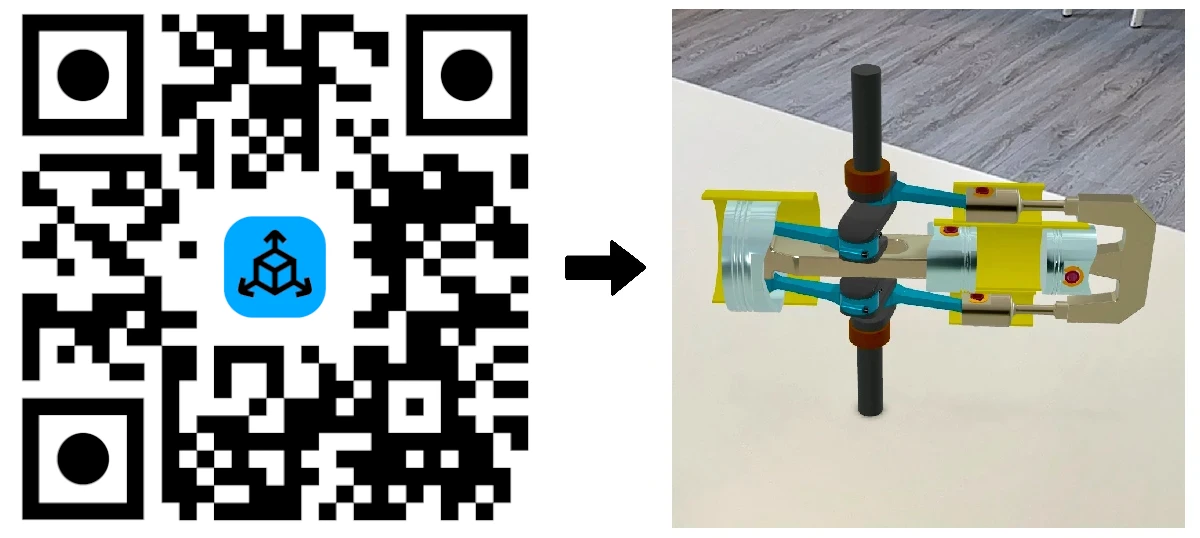
AR Code's 3D Modeling Apps for the Apple Vision Pro
AR Glasses & Headsets | 03/02/2026
Accelerate business innovation and customer engagement with powerful AR Code SaaS augmented reality solutions made for the Apple Vision Pro AR/VR headset and fully supported on iPhone and iPad. The launch of the Apple Vision Pro on February 2, 2024 brings your business next-level mixed reality for better product demos, interactive marketing, employee training, and enhanced workflows. Vision Pro and visionOS offer intuitive gestures, eye tracking, and speech recognition, unlocking immersive spatial computing across all industries.

AR Videos on the Meta Quest 3 with AR Code: A New Dimension of Immersive Advertising
AR Glasses & Headsets | 03/02/2026
Meta Quest 3 transforms the augmented reality space for businesses, enabling immersive AR video campaigns that boost user engagement and drive measurable business results. Companies ready to elevate brand awareness can leverage Meta Quest 3 with the powerful AR Code SaaS platform to deliver interactive, meaningful customer interactions that set them apart in the market.

AR Code on the Meta Quest 3: Enhancing Visualization of 3D Models in Augmented Reality
AR Glasses & Headsets | 03/02/2026
Meta Quest 3 is transforming augmented reality and virtual reality for businesses. Unveiled at Connect 2023, this advanced headset features a slim design, high-performance Snapdragon XR2 Gen 2 processor, and up to 512GB storage. Meta Quest 3 delivers unmatched immersive AR and VR business solutions, making it the ideal choice for digital transformation.

AR Codes are Automatically Compatible with the Apple Vision Pro and its VisionOS
AR Glasses & Headsets | 02/02/2026
Enter the world of augmented reality for business with AR Code SaaS solutions, where you connect physical products to immersive digital experiences. Capture new customers and boost brand recognition by leveraging Apple Vision Pro and the AR Code SaaS platform, proven to accelerate ROI and provide a significant edge in every industry.

Apple Vision Pro Headset Details and its 3D Models USDZ & GLB via an AR Code
AR Glasses & Headsets | 02/02/2026
Empower your business to lead the immersive technology revolution with the Apple Vision Pro headset. Launching February 2, 2024, this groundbreaking device features the high-performance M2 chip, fast Wi-Fi, and dual 4K micro OLED displays. Apple Vision Pro is redefining enterprise AR and VR, equipping organizations to unlock powerful digital workflows and immersive opportunities.
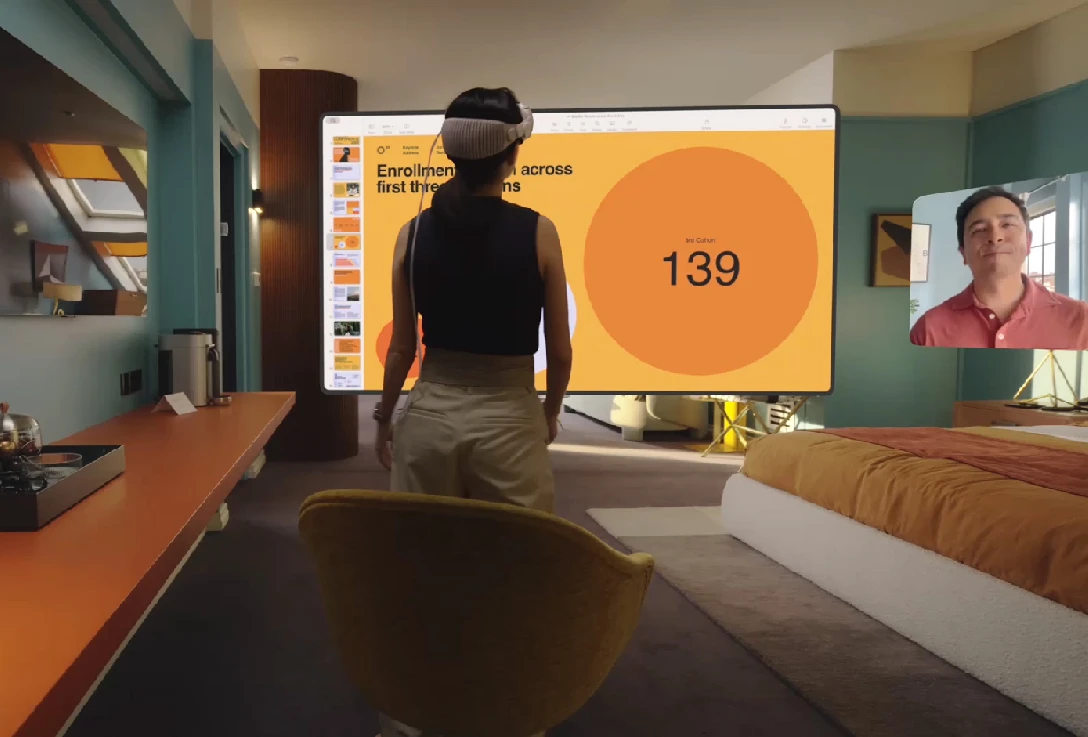
AR FaceTime on the Apple Vision Pro Headset
AR Glasses & Headsets | 03/02/2026
Apple Inc. is leading digital innovation with immersive augmented reality technologies. The Apple Vision Pro headset and visionOS introduce a new era of business interactions, transforming FaceTime into an interactive tool for enterprise communication. Amplify your company’s digital impact by leveraging scalable AR Code SaaS solutions and advancing your AR initiatives.
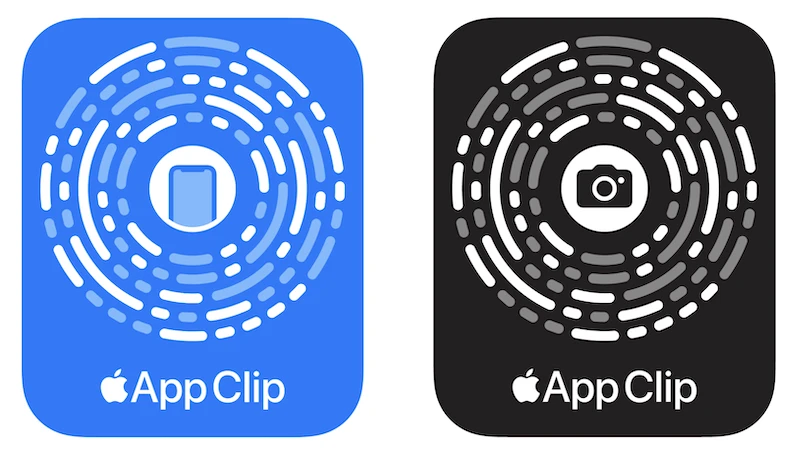
App Clip Codes and Apple Vision Codes: anchoring Augmented Reality Experiences on iOS 17 and visionOS
AR Glasses & Headsets | 03/02/2026
Apple is transforming business augmented reality with App Clip Codes and the Apple Vision Pro Headset. Introduced with iOS 14 and enhanced in iOS 17, these technologies help enterprises deliver engaging AR experiences that increase customer interaction and boost ROI. Direct Vision Pro and visionOS compatibility ensures seamless deployment of cutting-edge AR content for your brand, positioning your business at the forefront of digital innovation.

Apple Vision Code: The Future of AR and QR Codes on visionOS
AR Glasses & Headsets | 02/02/2026
The Apple Vision Pro headset, launched on February 2, 2024, is changing the way businesses use augmented reality (AR) and virtual reality (VR). This state-of-the-art AR/VR device lets organizations deliver immersive, interactive AR experiences that enhance customer engagement, product visualization, and digital content delivery.

Metaverse, Virtual Reality, and Augmented Reality: Apple's and Meta's plans
AR Glasses & Headsets | 02/02/2026
Augmented reality (AR) and virtual reality (VR) are transforming business operations and digital marketing. Organizations use AR and VR to create immersive customer experiences, increase conversions, and build brand loyalty. Adopting these technologies drives innovation and sets your business apart in the digital landscape.
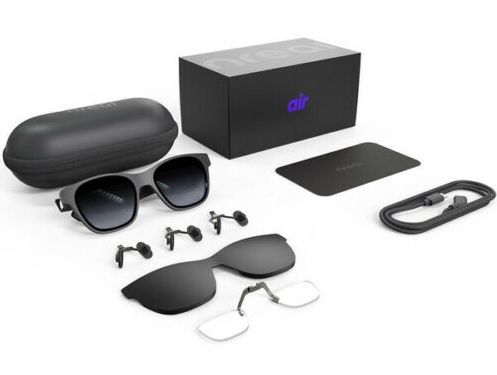
Augmented Reality Glasses to Replace Smartphones Within 10 Years ?
AR Glasses & Headsets | 02/02/2026
Over the next decade, augmented reality glasses will revolutionize how businesses connect with customers and teams. Advanced AR glasses and headsets fuse digital content with the real world, enhancing communication, engagement, and real-time data access. Early adopters of AR Code SaaS solutions can achieve market leadership and leverage cutting-edge tools to outperform competitors.

Apple Vision Pro Headset: A New Era of Augmented Reality
AR Glasses & Headsets | 02/02/2026
On June 5, 2023, Apple introduced the Apple Vision Pro, a next-generation augmented reality headset setting new standards for enterprise innovation. Released in the US on February 2, 2024, Vision Pro brings advanced AR to transform how businesses engage clients, streamline workflows, and drive digital transformation.
Immersive technology is transforming digital business with AR glasses and headsets, delivering interactive 3D content using advanced sensors, cameras, and high-resolution displays. These devices enhance productivity, modernize communication, and streamline employee training through spatial computing.
AR Glasses and Headsets for Enterprise: Powering Digital Transformation
AR glasses and headsets are disrupting manufacturing, education, healthcare, and retail. In manufacturing, AR solutions offer hands-free training and maintenance. Education benefits from interactive learning, while healthcare gains remote diagnostics and treatment support. Retail leverages AR glasses to boost customer engagement and digital brand experience. Augmented reality solutions are essential in industrial manufacturing and education.
Top AR glasses and headsets for enterprise:
- Meta Quest 3, 3S & Pro: Industry-leading headsets with high-resolution displays, color passthrough, and reliable spatial tracking. Perfect for enterprise training, simulations, and remote collaboration.
- Samsung Galaxy XR: Advanced XR headset with 4K micro-OLED displays, full control options, and AI. Designed for hybrid work, collaborative design, and robust spatial dashboards.
- Magic Leap 2: AR glasses for remote assistance, digital twin visualization, and advanced 3D workflows in healthcare, manufacturing, and AEC.
- Lenovo ThinkReality A3: Lightweight AR glasses supporting spatial computing, virtual monitors, and multi-device workspace extension for field-service management.
- Epson Moverio BT-45 Series: Industrial AR glasses designed for safety, frontline work, remote support, and inspections in manufacturing and utilities.
- Snap Spectacles (5th Gen): Standalone AR glasses offering interactive Lens-based experiences for brands and creators merging physical and digital content.
- XREAL Air 2 Series: Ultra-light AR display glasses turning devices into large virtual screens for collaboration, productivity, and media.
- Apple Vision Pro (M5): Advanced spatial computing headset powered by visionOS, M5 chip, and AI integration, supporting Apple Vision Pro AR Codes for enterprise collaboration and sales.

Enterprise adoption of AR glasses and headsets continues to rise for customer engagement, workforce training, and collaboration. Learn how AR is transforming museum experiences and exhibitions.
AR QR Codes: Instant Augmented Reality Access
AR QR Codes deliver instant, app-free 3D augmented reality experiences on AR glasses, smart headsets, and mobile devices. Perfect for product demos, AR training, and branded content, these AR Codes streamline AR access. Discover how to scan AR Codes for seamless activation.
Compatible with iOS, iPadOS, visionOS, Android, and Meta Horizon OS, AR QR Codes use WebAR and A-Frame technology. Businesses deploy AR Codes on product packaging, event signage, and equipment for marketing, sales, and operational improvements. Explore applications in real estate, AR product packaging, and AR business cards.
AR Code SaaS: Unified Platform for AR Headset Content
The AR Code platform offers a centralized SaaS solution for AR content creation, deployment, and management across AR glasses and headset devices. Developers leverage ARKit to distribute immersive experiences through Apple Vision Pro, iPhones, and iPads. Learn more in the AR Code SaaS plans and licenses overview.
Quickly deploy AR experiences for digital workflows, equipment manuals, product previews, and remote training. Discover AR Splat for large 3D object placement, AR Photo for photorealistic scenes, AR Text for captions, and explore the AR Data API for programmatic content management. For visual advertising, review benefits in interactive digital advertising and visual e-commerce, and see custom AR Code links for greater engagement.
Our newest AR GenAI solution allows you to generate a 3D AR experience from a single photo of an object, offering the fastest 3D visualization for your products. Leverage Object Capture and AI Code generation for advanced AR creation, or use AR Logo for interactive branding. Experience immersive environments with AR Portals and engaging effects with AR Face Filters.
Meta Quest 3: Advanced AR QR Code and Spatial Content Solutions
Bring interactive 3D content and augmented reality videos to Meta Quest 3 with AR QR Codes. Browser-based delivery empowers business training, product visualization, and collaboration on the Meta Quest platform. Experience next generation AR deployment for your enterprise.
Apple Vision Pro Integration: AR QR Codes on visionOS
AR Code’s advanced compatibility with Apple Vision Pro enables seamless AR deployment on visionOS. Deliver immersive AR directly to users without app installation. For an in-depth overview, visit the Apple Vision Pro headset guide.
Conclusion: Accelerate Enterprise Growth with AR Code and Augmented Reality
AR glasses and headsets are driving digital transformation for businesses. The AR Code platform offers scalable SaaS for fast AR rollout, improving ROI, workflows, and collaboration. Enhance engagement with AR Codes for collaborative design and experience the advantages of spatial computing.
Stay ahead in the augmented reality ecosystem with Apple Vision Pro integration and AR Code innovations. Future-proof your enterprise with enterprise-ready AR solutions.
Frequently Asked Questions
What is the expected impact of AR glasses and headsets on the future of enterprise technology?
AR glasses and headsets optimize enterprise operations with remote support, instant data visualization, and hands-free workflows, boosting efficiency and engagement. Explore how AR Codes improve smart city solutions.
Which AR glasses and headsets are most suited for enterprise use?
The best AR devices for business include HoloLens, Magic Leap, Meta Quest Pro, Lenovo ThinkReality, Epson Moverio, and Apple Vision Pro. These devices offer spatial features, digital twin visualization, and advanced integration. Learn more about choosing quality AR SaaS platforms.
What makes AR Code a valuable solution for AR headset deployment?
AR Code simplifies AR content creation and delivery for smartphones and headsets without requiring app downloads. Launch interactive AR instantly for your business. Discover how to create custom AR Code experiences for users.
How will the Apple Vision Pro change the AR landscape?
Apple Vision Pro introduces advanced visuals, accurate eye-tracking, and a spatial user interface, revolutionizing AR storytelling, productivity, and workflows. AR Code offers total compatibility. See more at Apple Vision Pro Codes.
Which industries benefit most from AR Code and AR headsets?
Sectors such as manufacturing, logistics, healthcare, education, and field service leverage AR Code and AR headsets for rapid deployment, improved safety, immersive training, and customer satisfaction. Explore industry-specific solutions like AR 3D models for industry and AR educational models. Try the new AR GenAI solution to generate a 3D AR experience from a single object photo.
167,888 AR experiences
587,780 Scans per day
133,859 Creators


